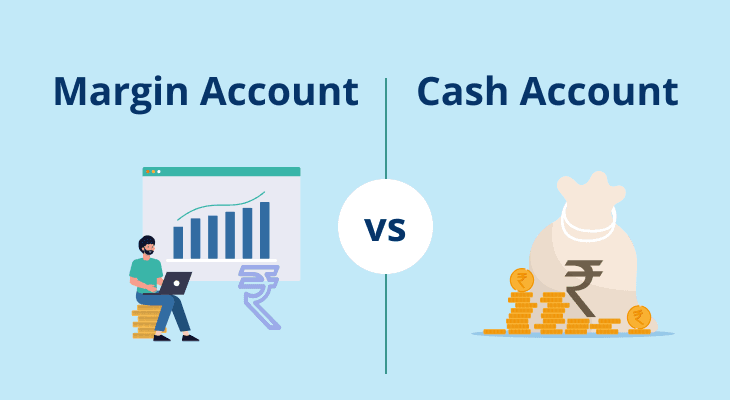
Difference Between HUF and Individual Demat Accounts
Selecting the appropriate Demat account structure is a critical decision for investors, as it influences not only how assets are held and traded but also how tax liabilities are managed and wealth is preserved across generations.
In India, two popular options are available to investors. They may open an individual demat account, or a Hindu Undivided Family (HUF) demat account. What is the difference between the two? An individual Demat account serves the needs of a sole investor. It is simple and offers direct control. On the other hand, a Hindu Undivided Family (HUF) Demat account provides a vehicle for collective family wealth management.
By understanding the distinct features, benefits and limitations of each, you can select the right type of demat account according to your financial goals and legacy planning. In this article, learn about HUF and individual Demat accounts, examine their differences and tax implications, usage guidelines and what restrictions apply to each.
What is a HUF Demat Account?
A Hindu Undivided Family (HUF) is a specific form of joint family recognised under Indian law, comprising a common ancestor and all lineal male descendants, along with their wives and unmarried daughters.
For investment purposes, a HUF functions as a separate legal entity with its own Permanent Account Number (PAN), bank account and the ability to file tax returns independently of its members. A HUF Demat account, therefore, holds securities such as equities, mutual funds, exchange-traded funds (ETFs) and bonds on behalf of the family unit. These are held under the management of the Karta, who is typically the eldest male member but can now be a female head after recent amendments.
Opening a HUF Demat account begins with creating the HUF, which involves a family declaration enumerating members and specifying the Karta. The HUF then obtains a distinct PAN and opens a bank account in its name. Once these formalities are complete, the HUF can approach a depository participant (DP) to open a Demat account. The DP collects KYC documents for both the HUF and the Karta, including identity proofs, address verifications, the HUF declaration deed and bank account details. Once activated, the HUF Demat account operates in the same way as an individual demat account but serves the collective investment interests of the entire family.
A HUF Demat account is particularly valuable for families that wish to pool resources for larger-scale investments, manage wealth cohesively or plan for succession without dividing assets prematurely. In addition, the HUF structure streamlines inheritance planning, as assets held in the HUF remain within the family fold and pass automatically to members according to Hindu succession laws.
What Is an Individual Demat Account?
An individual Demat account is the digital equivalent of a personal investment vault. In an individual demat account, one person holds their securities in electronic form. This account is tied to the individual’s PAN, bank account and KYC credentials, making it the most straightforward option for retail investors. Eligible account holders include resident Indians over 18, NRIs subject to RBI guidelines and minors through guardians or parents acting on their behalf.
To open an individual Demat account, an investor submits proof of identity (PAN, Aadhaar or passport), proof of address (utility bill or bank statement), bank account details and a passport-size photograph to the DP. The entire process can be completed online in most cases, with e-KYC and e-sign facilities reducing turnaround times to as little as five minutes. Once approved, the investor receives a unique Beneficial Owner Identification Number (BO ID), which is used for all electronic transactions.
The individual Demat account integrates seamlessly with a trading account. When an investor places a buy order, the exchange verifies available funds. On settlement, the purchased securities are credited to the Demat account, while sale proceeds are transferred back into the linked bank account.
Individual accounts are ideal for those pursuing personal financial objectives, like building a retirement corpus, saving for education, capitalising on market opportunities or diversifying portfolios. They also allow for intraday trading, margin funding, and participation in IPOs.
Differences between HUF Demat Account and Individual Demat Account
Feature | Individual Demat Account | HUF Demat Account |
Legal Entity & PAN | One person, one PAN | The HUF is a legal entity with its own PAN; managed by the Karta |
Ownership & Operation | Sole control by the account holder | Owned jointly by family members, managed by the Karta |
KYC Requirements | Identity and address proof of the individual | KYC for both HUF and Karta; may also include adult coparcener PANs |
Taxation | Income and capital gains are taxed under personal slabs | Taxed as a separate entity with exemptions; shares individual’s tax exemptions |
Exemption Benefits | Only personal basic exemption applies | Can avail separate basic exemption ₹2.5 lakh plus deductions under 80C, 80D, 80G |
Investment Purpose | Personal financial goals | Pooled family wealth, estate and legacy planning |
Succession Planning | Governed by general succession laws | Follows Hindu Law succession; Karta succession passes automatically |
Account Limits | One person can have multiple accounts | HUF typically opens only one Demat account |
Tax Implications and Benefits
Tax planning can be a compelling reason for families to opt for a HUF Demat account. Here are some key things to consider:
- Basic exemption limit: An HUF enjoys a separate income tax exemption up to ₹2.5 lakh, distinct from its members’ personal exemptions. This effectively doubles the family’s tax-free threshold when two PANs (individual and HUF) are utilised.
- Deductions and exemptions: HUFs can claim deductions under Section 80C (up to ₹1.5 lakh for investments like PPF, ELSS, life insurance), Section 80D (health insurance premiums),and Section 80G (charitable donations), alongside exemptions on long-term capital gains under Sections 54 and 54F when funds are reinvested in residential property.
- Capital gains treatment: Both individual and HUF accounts follow the same capital gains regime: short-term capital gains (STCG) are taxed at 20% for shares held under one year, and long-term capital gains (LTCG) at 12.5% on gains exceeding ₹1.25 lakh. By splitting gains between individual and HUF accounts, families can optimize tax outflow, ensuring a part of gains remain under the exempt threshold.
- Dividend distribution tax and TDS: Dividends are taxable in the hands of the recipient at applicable slab rates, with TDS at 10% for payments exceeding ₹5,000, rising to 20% if PAN is not furnished. HUFs and individuals face identical TDS provisions, but an HUF’s separate return allows better planning to use deductions and lower average tax rates.
- Estate and succession planning: Assets in an HUF are not considered part of an individual member’s estate. This reduces complexities in inheritance disputes and estate duty, and this separation can mitigate wealth erosion due to unforeseen liabilities.
Additional Read: Long-Term Capital Gains Tax on Shares in India Explained
Usage and Restrictions
Below are some key rules that apply to the use of individual and HUF demat accounts.
#1. Eligibility
- Individual demat account: Available to resident adults, NRIs under PIS (Portfolio Investment Scheme) guidelines, and minors through guardians.
- HUF demat account: Must be a recognized HUF under Hindu law with at least two coparceners. The Karta must be an adult member.
#2. Transaction scope
Both account types permit trading in equities, ETFs, mutual funds, IPOs and intraday segments. HUF accounts cannot be used for F&O trading if the DP’s internal policies restrict derivative transactions for non-individual clients.
#3. Maintenance and charges
DPs levy annual maintenance charges (AMC) on both demat account types, typically ranging from ₹300 to ₹750. HUF accounts may attract slightly higher AMC due to additional KYC and reporting requirements.
#4. Nomination and transfer
- Individual demat account: Nomination facility ensures seamless transfer to nominees.
- HUF demat account: No direct nomination; succession is governed by Hindu Succession Act. Coparceners succeed automatically, avoiding probate but requiring family records for proof of lineage.
#5. Compliance and record-keeping
HUFs must file separate income tax returns, and update DP records when coparceners change or new members are born. They also need to maintain the HUF declaration deed. Failure to comply with these requirements can lead to account freezes or penalties.
Conclusion
Deciding between an individual and a HUF demat account depends on your investment objectives, family structure and tax planning horizon. An individual demat account is ideal for personal wealth creation, offering direct control and straightforward compliance.
In contrast, a HUF demat account enables families to pool resources, leverage separate tax exemptions and streamline succession under Hindu law. For many, combining both structures – that is, maintaining an individual account for personal goals and a HUF account for collective family assets yields optimal flexibility and fiscal efficiency.
Whichever option you choose, make sure that you align your decision with long-term financial strategy, keep documentation current, and consider professional tax advice to fully capitalise on the benefits each account type offers.
Additional Read: Eligibility Criteria to Open a Demat Account - Demat A/C Eligibility
FAQ
Can I hold both an individual and a HUF Demat account?
Yes. You can maintain a personal Demat account alongside a HUF Demat account, using each for its intended investment goals and tax advantages.
Who manages a HUF Demat account?
The Karta—typically the eldest coparcener—manages the HUF Demat account, making decisions on behalf of all family members.
Are there specific tax benefits for a HUF Demat account?
Yes. A HUF enjoys its own basic exemption of ₹2.5 lakh, separate deductions under Sections 80C, 80D, 80G and capital gains exemptions under Sections 54/54F.
Can a HUF account undertake intraday trading and F&O transactions?
Intraday trading is generally permitted. F&O access depends on the DP’s policy; verify eligibility with your broker.
How does succession work in a HUF Demat account?
Upon Karta's death, the senior-most coparcener automatically assumes the role of Karta, and the account continues without requiring court intervention or probate.


